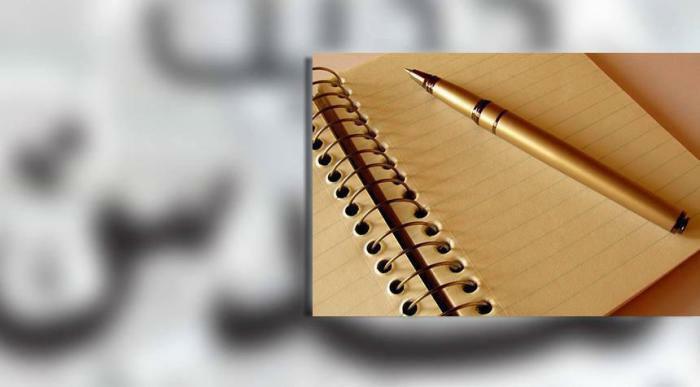In a dark cell in Ofer military prison, veteran journalist Ali al-Samoudi, 58, from Jenin, endures his new fate as an "administrative detainee" for six months. This decision was made by the occupation's intelligence services and is not based on a specific charge or a public trial. This scene epitomizes the systematic repression of the Palestinian press, which has become one of the most prominent tools of the ongoing war of extermination for eight months. The rise in the number of administratively detained journalists to 20, out of 50 others currently in detention, is not just a passing number. Rather, it is an indicator of Israel's shift from killing witnesses to imprisoning them, in an attempt to obliterate the Palestinian narrative and perpetuate a narrative of absolute power. The story of Al-Samoudi—who has spent 35 years documenting the occupation's violations through his lens—reproduces the same scenario experienced by dozens of journalists before him: a dawn raid on his home, a random search, the confiscation of his equipment, and then a notice stamped "top secret" announcing his administrative detention on the pretext of "threatening national security," without allowing his lawyer to review the file. This complex judicial mechanism, which allows for detention for six months, renewable indefinitely, has become a strategic weapon to silence voices, especially with the escalation of international reports documenting Israeli forces' use of cluster bombs and targeted attacks against civilians. Administrative detention is not a new phenomenon, but its escalation in recent months reveals a well-thought-out plan: since the start of the last war on Gaza, any camera documenting the destruction in Rafah or Khan Younis has become a "crime" that warrants imprisonment, according to Israeli security logic. Reports from the Palestinian Center for Development and Media Freedoms show that 90% of detained journalists have been subjected to physical and psychological torture, while their families are denied visits under the pretext of the "security situation." The most cruel irony lies in the coincidence of these arrests with the recent International Court of Justice ruling calling on Israel to "prevent acts of genocide," raising questions about the international community's role in protecting the truth. History repeats itself: In 1988, Israel administratively detained journalist Mohammed Odeh for three years without charge. In 2003, Al Jazeera correspondent Tayseer Allouni was abducted from the streets of Ramallah, becoming the first foreign journalist to be tried by military tribunal. Today, Al-Samoudi joins a long list of journalists who have been censored. The question pressing on the global conscience is: How many more lenses must be broken, and how many more pens silenced, before the war on journalism turns into a crime against humanity? The answer lies in the silence of Israeli prisons that swallow up eyewitnesses, and in those shattered cameras that still send distress signals from under the rubble.
OPINIONS
Fri 09 May 2025 10:09 am - Jerusalem Time
The Pen is Chained: Palestinian Journalists Confronting Israel's Administrative Detention Machine: A Narrative of Systematic Repression Against Eyewitnesses

Tags
MORE FROM OPINIONS
Israel has already lost the Gaza war. It just doesn’t know it yet
Quds News Network
The Fatal Flaw of the New Middle East: Gaza, Syria, and the Region’s Next Crisis
Foreign Affairs
Trump's Visit...and the Palestinians' Measure of Success and Failure
Jihad Harb
Gideon: A Biblical Legend in the Service of Extermination
Amin Al-Hajj
Unilateralism
Hamada Faraana
Gossip on the banks of the Tigris!
Ibrahim Melhem
Between ideology and pragmatism... it is time to save what remains of Palestine
Ramallah - "Al-Quds" Dot Com
Between Belfast and Gaza: Lessons from Northern Ireland for Palestinians
Palestine: From Partition to Ethnic Cleansing... The Nakba Continues
Rafat Qassis
Trump's Tour: Winners and Losers
Awni Al-Mashni
Every day in the camp is a reminder that the Nakba is not over.
Muhammad Abu Akar, a former prisoner who spent five years in administrative detention.
On the 77th anniversary of the Nakba: Escalation against UNRWA and restrictions on refugee camps...
This message may never arrive.
The End of the Global Aid Industry
Foreign Affairs
The release of Eidans...is there a breakthrough that will stop the genocide?
Jamal Zaqout
The release of Idan Alexander: New implications for US politics and Israeli relations
Marwan Emil Toubasi
Israel at a Crossroads: Occupation, Genocide, and the Death of a Vision
Alon Ben-Meir
Between Friedman's speech and Trump's interests, Palestine is a national liberation issue, not a bargaining...
Marwan Emil Toubasi
Doubts about the intentions and feasibility of the US aid plan for Gaza!
Nabhan Khreisha
All efforts to stop the war of extermination and thwart the plans for displacement and...
Walid Al-Awad


Share your opinion
The Pen is Chained: Palestinian Journalists Confronting Israel's Administrative Detention Machine: A Narrative of Systematic Repression Against Eyewitnesses